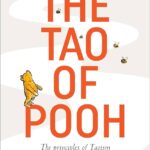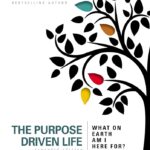Welcome to Thinkers Books, your dedicated corner for delving into the world of enlightening literature. Today, we journey through the captivating realm of mindfulness with Ronald D. Siegel’s ‘The Science of Mindfulness: A Research-Based Path to Well-Being.’
In ‘The Science of Mindfulness,’ esteemed Harvard Medical School professor Ronald D. Siegel offers an in-depth exploration of mindfulness, combining rigorous scientific research with practical wisdom. This book isn’t just about meditation – it’s a comprehensive guide that illuminates the inner workings of the human mind, explaining how mindfulness practices can alter our neural pathways and positively impact our mental and physical well-being.
Siegel challenges the common misconception that mindfulness is about calming down or seeking tranquillity. Instead, he posits that our relentless pursuit of pleasure and aversion to pain often leads to more stress and discontentment than peace. He proposes mindfulness as a path to emotional balance and overall wellness.
The book is enriched with compelling case studies, providing real-world examples of how mindfulness can help regulate emotions, integrate thoughts and feelings, increase empathy, and enhance our quality of life.
Now, let’s delve deeper into the top five takeaways from this enlightening read:
- Mindfulness is not just about calming down: Siegel emphasises that mindfulness is about acceptance of the present moment in all its complexity rather than merely seeking tranquillity. It’s about observing our experiences – good or bad – with openness and curiosity rather than trying to alter or escape them. This acceptance allows us to respond to life’s challenges with greater clarity and stability.
- Neuroplasticity and Mindfulness: The book explores how mindfulness practices can physically change our brains – a phenomenon known as neuroplasticity. Regular mindfulness practice can enhance areas of the brain associated with emotional regulation and empathy, leading to a more balanced emotional state and improved social relationships.
- Integration of Thoughts and Feelings: Siegel discusses how mindfulness helps us better integrate our thoughts and feelings. Often, we may find ourselves caught in internal conflicts, where our thoughts and feelings seem at odds with each other. Mindfulness allows us to observe these internal dynamics without judgment, helping us achieve a more harmonious internal state.
- Mindfulness and Relationships: Siegel demonstrates how mindfulness can enhance interpersonal relationships. By fostering empathy and understanding, mindfulness allows us to relate to others more compassionately and meaningfully. It helps us recognise and respect the perspectives of others, leading to more fulfilling and harmonious relationships.
- Mindfulness as a Path to Well-Being: Rather than presenting mindfulness as a quick fix or a tool to achieve a particular outcome, Siegel positions it as a path to overall well-being. He suggests that embracing mindfulness as a lifestyle—rather than a technique to be used sporadically—can improve our mental and physical health.
Each of these learning points offers profound insights into the science and practice of mindfulness.
‘The Science of Mindfulness’ significantly contributes to mindfulness and well-being. Siegel’s ability to blend scientific research with practical techniques makes it a valuable resource for beginners and seasoned mindfulness practitioners.
I found this book to be a game-changer. It has deepened my understanding of mindfulness and provided practical techniques to incorporate into my daily routine. The transformation I’ve experienced is nothing short of remarkable.
As we conclude our exploration of ‘The Science of Mindfulness’, I invite you to continue reading more summaries from Thinkers Books. Each book is a new adventure waiting to unfold, a unique opportunity to transform your life. Remember, knowledge is power, and books are the fuel. Keep reading, keep thinking! Until our next intellectual journey, happy reading!







